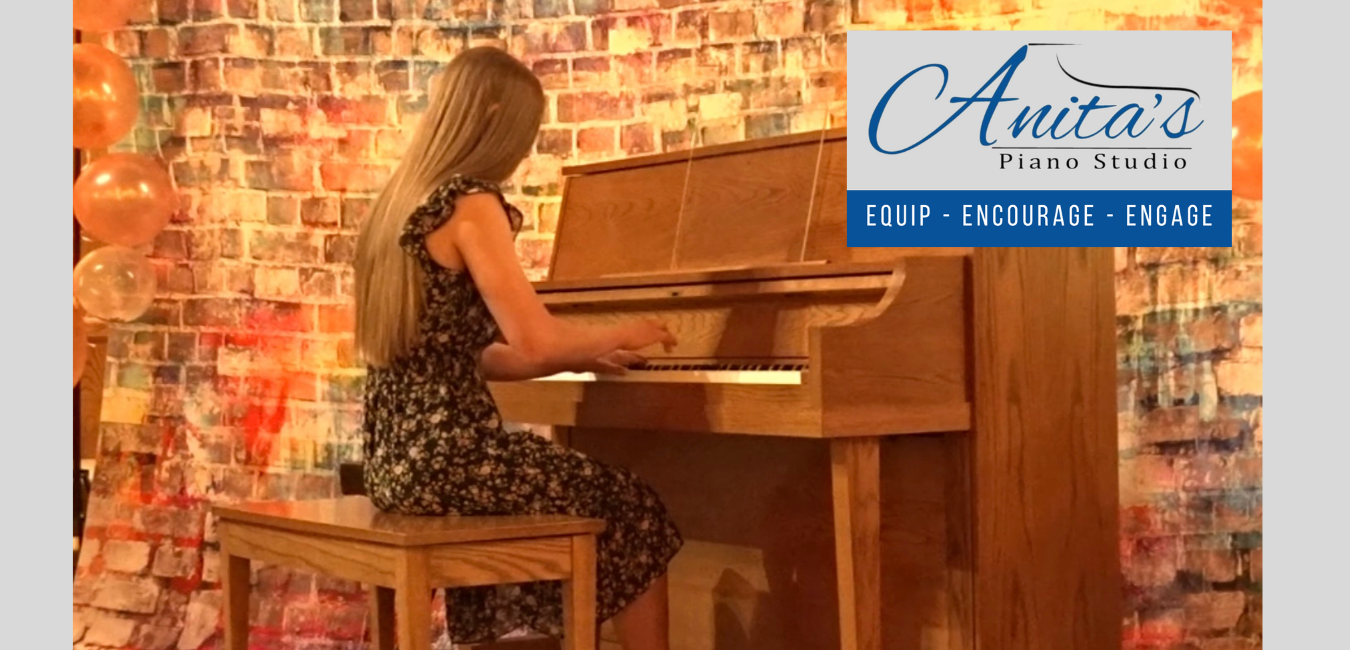Creating a Piano Practice Habit at Home
Saturday, September 14, 2024 by Anita Byers | Practice
Next week begins our 4th week back to piano after the summer break. I hope by now everyone is settling into their school routine and new activities.
Piano is different than any other after-school activity. With piano, practice is done at home during the week and what happens each week with the teacher is the instruction. Practice is so important in making progress. The more progress a student makes, the more fun piano is! There are 168 hours in a week, but I only spend 45 minutes of that time with your pianist.
The parent's role in developing great practice habits at home is crucial. My hope is that time spent on the bench will become a part of the student's daily routine just like brushing their teeth and doing homework. Scheduling it will make it happen. Regular and focused practice sessions are best!
In my studio, the students who are using the Vivid Practice app on a regular basis to view assignments and track practice are the students that are progressing and forming great practice habits. They come to piano class ready to play!
The article, "What Parents Need to Know About Piano Practice" was written by Andrea Dow who is the co-author of the WunderKeys piano method books. I hope you will find some ideas of how to make piano practice a regular part of your pianist's day.
WHAT PARENTS NEED TO KNOW ABOUT PIANO PRACTICE
1. Your children will need help – Up until about age 11, children need hands-on help with home practice. And even though you yourself may not read music or play the piano, your assistance is still very much needed! Parental help can take the form of reading lesson notes, organizing practice time wisely, providing encouragement through difficult sections or situations, and seeking out answers for “I’m stuck on this” problems. Asking a young child to be in charge of something as important as piano practice is often asking too much. Your help at home will make a substantial difference in your children’s progress.
2. Your children need you to establish a routine – Piano practice that happens every single day is by far the most effective practice structure. 30 minutes three times a week is just 90 minutes. 20 minutes seven days a week is 140 minutes. The total difference is 43 hours of missed practice per year if your children are only at the piano three times a week!
Short, focused and regular visits to the piano help your children retain and understand what they are learning while making the most of generally short attention spans. If practice is enjoyable, rather than arduous, your children will naturally (and unknowingly!) increase the time they spend on the bench… eventually reaching that 30 minute mark.
Setting a regular time of day when piano practice happens “no matter what” will ensure a daily practice routine is easy for your children to maintain.
3. Your children need lots of encouragement – Learning to read music and play the piano can be difficult; it can be discouraging… it can feel overwhelming. Your children (no matter what their age) need loads of encouragement.
And not just verbal encouragement. You can show your children that you value their efforts by attending their recitals with enthusiasm, inviting friends and family to listen to them play, and taking the time to sit and listen to them practice with your undivided attention.
4. Your children need a home instrument that is enjoyable to play – Much of the pleasure from playing the piano comes from one’s ability to emote feeling, nuance and expression through music. Even young beginners will experience great satisfaction from making beautiful sounds…. so choose an instrument that gives them the best opportunity to make beautiful sounds. Guidance from your children’s teacher will help you find an affordable piano (don’t worry, there are many great and affordable options) that will give your children the tool they need to truly experience piano lessons. An investment in a good instrument protects the investment you are making in your children’s musical education.
5. Your children need a positive practice environment – Aside from providing encouragement, your children need you to create a positive practice atmosphere. Help your children avoid “cramming” the day before lessons. Stick to your daily routine to avoid weeks of forgotten practice (which lead to feelings of inadequacy on the part of your children). Music is joyful… and so practicing music should be as well. This is, fortunately, something that you are able to create easily with a commitment to regular practice.
6. Your children need you to communicate with their teacher – Working as a parent/child/teacher triangle is the optimal way to ensure progress and success in piano lessons. Be sure to communicate often with your children’s piano teacher. Check in on how lessons are progressing, ask for help if something is difficult for your children at home, let your teacher know when practice weeks have gone extremely well (or not so well). Working as a team means your children are supported equally on all sides at all times.
7. THE PLEASURE OF BEING A PIANO PARENT…
Learning to play music is a life-changing experience. And, as a parent, the process is a thrill to watch. Being a major part of this accomplishment is incredibly rewarding! The profound pleasure of being a “piano parent” far outweighs the required extra efforts; and this is, by far, the most important thing that piano teachers want parents to know about piano practice.

